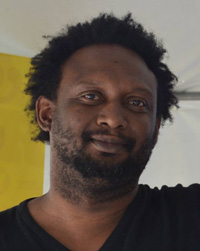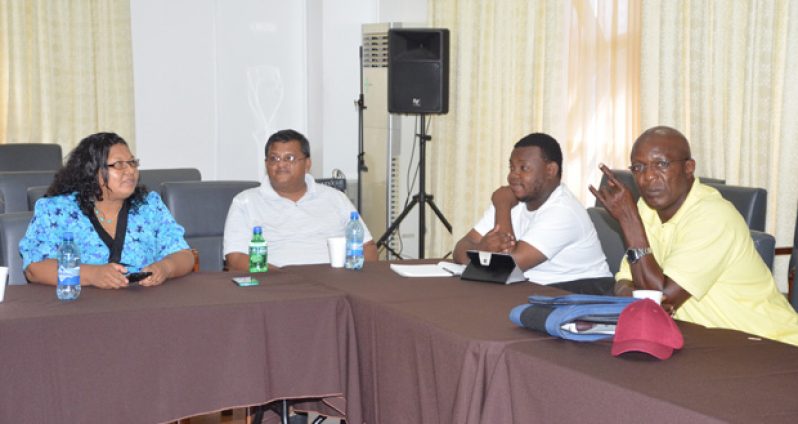–as phase 1 of cultural policy consultation ends
By Rabindra Rooplall
PART one of the national consultation on a cultural policy ended Saturday following fruitful discussions that produced “consolidated, analysed information,” which will be added to the second aspect of the consultation that is to be held in April 2016.

Among the issues raised were lack of funding, lack of public space for rehearsal and training and the “disrespectful” way in which many view the arts.
“The intention is to have all this consolidated, analysed information put into a policy framework and push it to the National Assembly. We are looking at both legislative and non-legislative policy measures, because we don’t want this to be a handed-down government programme,” Ruel Johnson, Adviser on Cultural Policy within the Ministry of Education (MoE) said, when the government through the ministry hosted a three-day event at the Arthur Chung Convention Centre, Liliendaal.
Underscoring that within the policy document there may be recommendations for a National Heritage Commission and a National Creative Industries Development Commission, Johnson said there is also need for a working group of experts who can help government in developing strategies to ensure that culture is integrated into all plans.
“Very often when you check certain programmes the degree to which it succeeds or fails is defined by incorporating culture into the overall planning,” he said.
PUBLIC INPUTS
The next session of the event is to have public inputs to refine the policy, Johnson said, and over the next few months he will be extracting the findings of the consultation, while meeting with experts and stakeholders in the sector to provide grounding for a comprehensive policy pertaining to culture and development.
These areas, he said, includes culture in education, culture in development and culture and citizenship.
CULTURAL HERITAGE
Meanwhile, the second component will be cultural heritage which deals with enhancing systems for the preservation and sustenance of cultural heritage, both tangible and intangible. The third component, he said, will be the creative industry economy.
Noting that the event was not as widely attended as anticipated, the Adviser on Cultural Policy said the participation of stakeholders within the sector was very deep and fruitful.
“They recognise that culture is a critical component to development and the UN has recognised it along with various bodies… But Guyana can provide leadership because of our diversity, since cultural innovation and developmental innovation work best when there is diversity; we have one of the most diverse populations on earth, we have to learn how to channel that diversity to maintain social cohesion,” Johnson explained.
While the Ministry of Education will have overall coordination for the process, he said the complexity of the processes necessary for both policy formulation and implementation dictates an inter-ministry effort.
For example, he said Culture in Development will see the need for collaboration among the Education Ministry and the ministries responsible for Social Cohesion, Citizenship, Communities, Indigenous Affairs and Governance (Natural Resources and the Environment).
He said the framework policy must be complemented by stakeholder participation, as cultural policy cannot be left to governments alone, but it has to be driven by the people themselves.
The Action Plan will set out guidelines for the implementation of initiatives in three phases. The first is a broad 10- year plan for 2016-2025.



.jpg)









